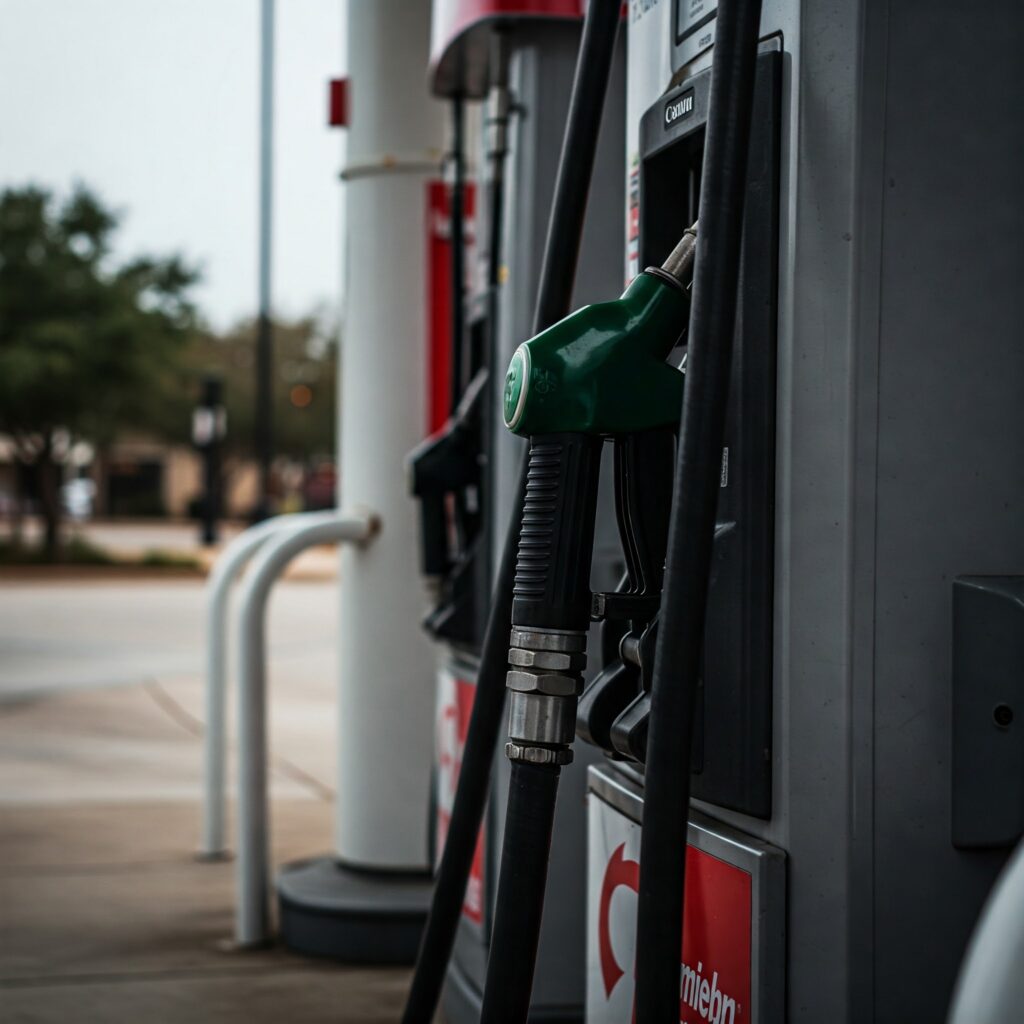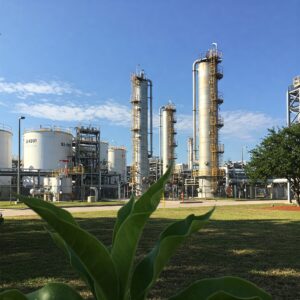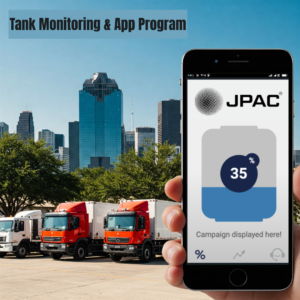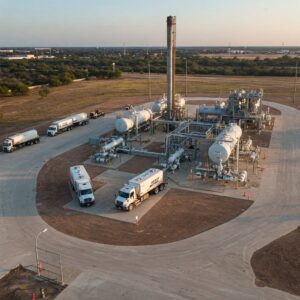Choosing the right fuel is a critical decision for businesses across the Southern and Midwest regions of the U.S. and in Mexico. Whether your operations involve light-duty vehicles, heavy machinery, or large-scale industrial equipment, understanding the differences between gasoline and petroleum can help you make the most cost-effective and efficient choice.
In this article, we’ll explore the key differences between gasoline and petroleum, their advantages and disadvantages, and how businesses can select the best fuel for their needs.
Understanding Gasoline and Petroleum
Gasoline and petroleum are both derived from crude oil, but they serve distinct purposes across various industries. While gasoline is primarily used for smaller vehicles and equipment, petroleum fuels — including diesel and heavy fuel oils — are ideal for industrial applications.
- Gasoline is a refined fuel designed for spark-ignition engines, commonly used in cars, light trucks, and small machinery.
- Petroleum refers to a range of fuels, including diesel, naphtha, and other heavy oils, used for powering large vehicles, industrial equipment, and power generation.
Choosing between gasoline and petroleum comes down to understanding your operational needs, fuel efficiency goals, and compliance with environmental regulations.
Key Differences Between Gasoline and Petroleum
When evaluating whether gasoline or petroleum is the right fit for your business, consider the following factors:
1. Energy Efficiency and Performance
- Gasoline: Provides quick ignition and is ideal for smaller engines requiring frequent start-and-stop operations. Businesses operating light-duty service fleets may find gasoline-powered vehicles more efficient for short-distance travel.
- Petroleum: Offers higher energy density, making it suitable for large machinery and long-haul transportation. Construction companies using diesel-powered equipment often benefit from its durability and fuel efficiency.
2. Fuel Availability and Infrastructure
- Gasoline: Readily available at retail fuel stations, making it a convenient choice for businesses without on-site fuel storage.
- Petroleum: Typically requires on-site storage or dedicated delivery through fuel service providers like JPAC Global Energy. Petroleum is often preferred for industries with high fuel demands.
3. Environmental Impact
- Gasoline: Often blended with ethanol (E10 or E85) to reduce emissions. It generally produces lower particulate matter than petroleum fuels.
- Petroleum: Diesel and other petroleum fuels release more carbon emissions but can be mitigated using technologies like diesel exhaust fluid (DEF) and renewable diesel options.
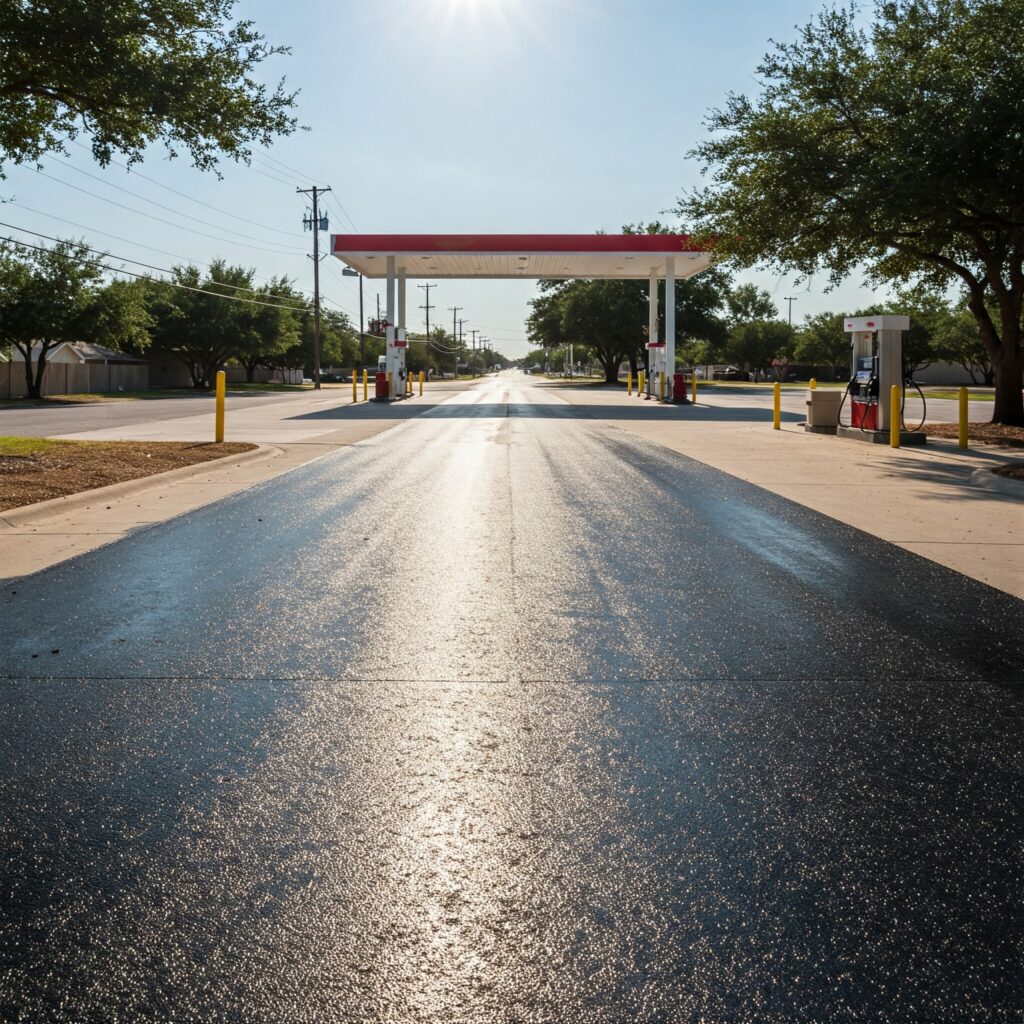
Factors to Consider When Choosing Gasoline or Petroleum
Selecting between gasoline and petroleum requires analyzing your business’s operational requirements. Here are some key considerations:
1. Type of Equipment and Vehicles
- Gasoline is ideal for passenger vehicles, light-duty trucks, and small machinery. For example, delivery companies operating in urban areas may benefit from gasoline-powered vehicles for shorter trips.
- Petroleum is often used for construction machinery, agricultural equipment, and commercial trucks. Mining companies and logistics providers may prefer diesel for long-distance hauls and heavy loads.
2. Budget and Fuel Management
- Gasoline tends to have a lower upfront cost, making it more budget-friendly for businesses with smaller fleets.
- Petroleum may provide better fuel efficiency and longer engine life, leading to lower maintenance costs over time. JPAC Global Energy offers competitive wholesale fuel services for cost-effective petroleum management.
3. Climate and Location
- Gasoline generally performs well in moderate climates and urban environments. However, ethanol-blended gasoline can face challenges in extreme cold.
- Petroleum is better suited for colder temperatures, as diesel engines are designed to withstand harsh environments. Many companies operating in the Midwest rely on seasonally blended diesel to maintain performance during the winter.
Sustainability and Regulatory Compliance
Both gasoline and petroleum are subject to strict environmental regulations. Understanding your regional requirements is essential to maintaining compliance.
- Gasoline Regulations: Many states mandate the use of ethanol-blended gasoline to reduce greenhouse gas emissions. Companies with vehicle fleets often monitor emissions using fuel management software to stay compliant.
- Petroleum Regulations: Diesel users must adhere to low-sulfur fuel standards and may require the use of DEF to minimize nitrogen oxide emissions. JPAC Global Energy provides tailored risk management programs to help businesses meet these standards.
For companies looking to reduce their carbon footprint, renewable fuel options like biodiesel and renewable diesel are viable alternatives to traditional petroleum.

Making the Right Choice: Gasoline or Petroleum?
Choosing between gasoline and petroleum depends on your business’s needs. Consider these factors to make the best decision:
Gasoline Might Be Right For You If:
- You operate light-duty vehicles or small machinery.
- Fuel availability and easy access are important.
- Emission reduction is a priority, and ethanol blends like E10 or E85 are available.
- Your operations are in urban or suburban areas.
Petroleum May Be the Better Choice If:
- You run heavy machinery, long-haul trucks, or industrial equipment.
- On-site fuel storage and bulk purchasing make sense for your operations.
- You require high-energy-density fuel for large-scale applications.
- Compliance with emissions regulations is managed through diesel exhaust fluid (DEF) or other solutions.
By evaluating your fuel consumption, storage capacity, and sustainability goals, you can choose the most cost-effective and reliable option for your business.
Fueling Your Business with Confidence
Selecting the right fuel for your business is a critical decision that impacts your operational efficiency, costs, and environmental impact. Whether you choose gasoline for its convenience or petroleum for its energy density, JPAC Global Energy is here to support your fuel management strategy.
We offer reliable fuel transportation services, mobile fuel delivery, and risk management programs across Alabama, Arkansas, Florida, Georgia, Louisiana, North Carolina, Michigan, Missouri, South Carolina, Tennessee, Texas, Virginia, Iowa, and all states in Mexico.
Ready to find the best fuel solution for your business?
Visit our website or click here to contact us now and discover how JPAC Global Energy can help keep your operations running efficiently. Let’s fuel your success, together.

